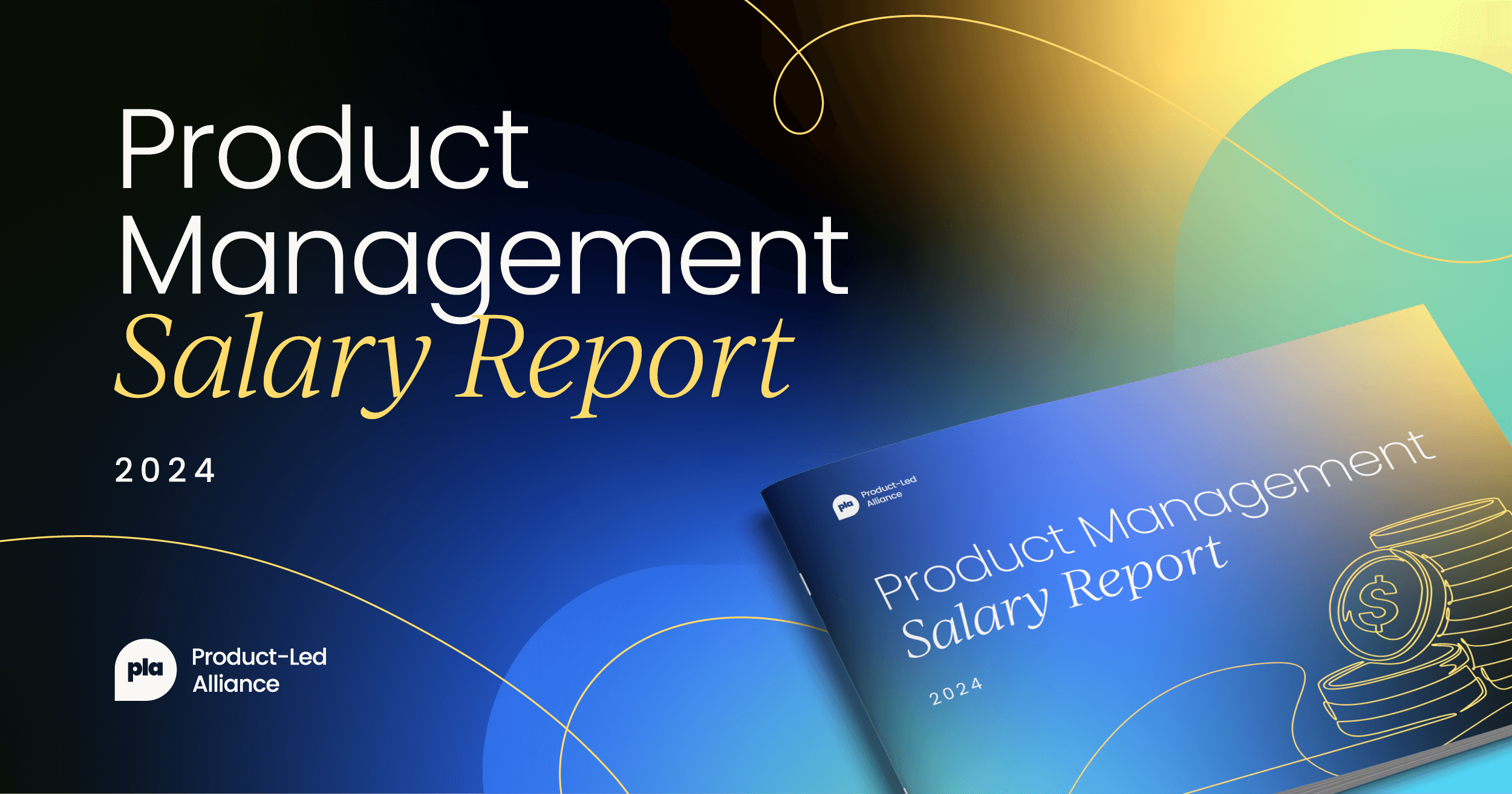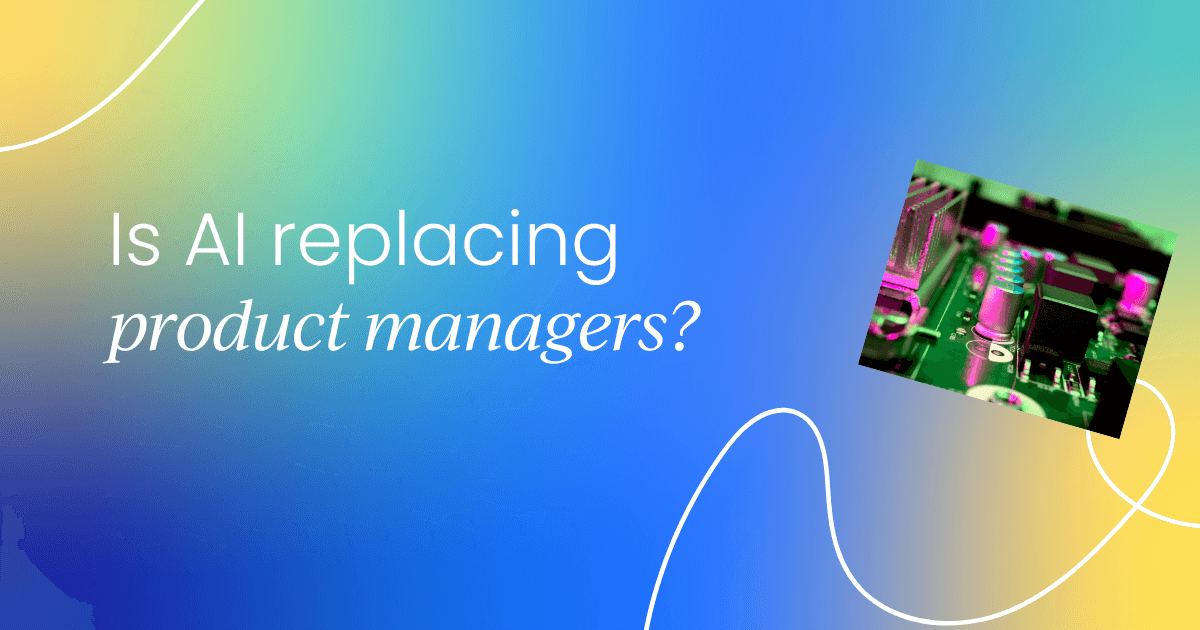Artificial Intelligence (AI) is revolutionizing industries faster than anyone imagined, and product management is no exception. Recent advancements in generative AI and machine learning have raised questions about whether traditional product management roles are on the brink of extinction.
But rather than sounding the death knell, AI is emerging as a powerful ally for product managers, amplifying their capabilities and enabling them to focus on strategic priorities. Let’s dive into why product management isn’t dying—it’s evolving, and AI is here to help.
Why some worry product management is dying
The rise of AI has led to a wave of speculation about the future of various job roles. For product managers, this debate has been particularly heated. Critics argue that:
- Automation could replace tactical tasks: Many aspects of product management—like data analysis, user feedback synthesis, and roadmapping—are becoming automated, making it seem like the role might shrink or vanish.
- AI-driven insights reduce the need for decision-makers: With AI capable of processing vast datasets and predicting customer behavior with uncanny accuracy, some believe the decision-making process no longer requires human intuition.
- Cross-functional skills are becoming automated: AI-powered tools now bridge gaps across product design, engineering, and marketing, leading to the perception that fewer human intermediaries are needed.
These arguments may appear persuasive on the surface, but they miss the bigger picture: AI is not a replacement for human ingenuity and empathy. It’s a tool that enhances it.
How AI is rapidly revolutionizing product development
AI is accelerating every phase of the product lifecycle, reshaping how teams conceptualize, build, and launch products. Here’s how it’s making waves:
- Speeding up ideation: AI tools like ChatGPT and Bard can brainstorm features, generate user personas, or even write user stories in minutes. This frees up product managers to refine ideas rather than start from scratch.
- Optimizing development: Machine learning models now assist with everything from code generation (e.g., GitHub Copilot) to debugging. This reduces friction between product and engineering teams, leading to faster delivery cycles.
- Enhancing user research: Sentiment analysis, A/B testing automation, and predictive analytics give PMs actionable insights into customer needs, often before users articulate them.
- Data-driven decision-making: AI synthesizes complex datasets into digestible insights, helping PMs make informed decisions with unprecedented speed and confidence.
While these advancements are transformative, they don’t eliminate the need for product managers. Instead, they redefine their focus, pushing them to lead with strategy, vision, and empathy.
The rise of AI-powered product manager
AI has empowered a new generation of professionals who can straddle product management, design, and engineering roles—dubbed "triple threats." These individuals leverage AI tools to:
- Prototype quickly: Tools like Figma’s AI features and Adobe Firefly make it easier for non-designers to create high-fidelity prototypes.
- Write and debug code: PMs who might not have had coding expertise can now use AI to write, refine, or debug code.
- Predict market trends: Platforms like Salesforce Einstein and Tableau provide actionable insights into market dynamics and customer behavior.
Does this mean every product manager must become a triple threat? Not necessarily. The rise of these versatile professionals highlights the value of adaptability and continuous learning, but it doesn’t diminish the importance of specialized roles. Collaboration will remain essential, as even the most talented individual can’t replicate the creativity and depth of thought that comes from diverse teams.
Not getting lost in the AI hype
To thrive in an AI-driven industry, product leaders must embrace new strategies that blend innovation with human-centric leadership. Adopting a growth mindset is essential, as staying relevant means continuously learning about emerging AI tools and integrating them effectively into workflows. With AI managing tactical tasks, leaders can focus on strategic vision, crafting long-term plans that align with organizational goals.
Emotional intelligence remains critical, as AI can analyze data but lacks the human touch needed for stakeholder engagement and team motivation. Championing collaboration is key, emphasizing the power of cross-functional teamwork to create exceptional products.
Finally, leveraging AI ethically ensures trust and respects user privacy, turning integrity into a competitive advantage. By focusing on these areas, product leaders can future-proof their roles and transform challenges into opportunities.
Harnessing AI to its truest potential
As AI becomes integral to product development, building teams equipped to harness its potential is crucial. Here’s how to do it:
- Recruit AI-savvy talent: Look for candidates with experience in machine learning, data science, or AI tools. While technical expertise is a plus, curiosity and a willingness to learn are equally important.
- Train your team: Invest in upskilling. Encourage team members to explore AI certifications, attend workshops, and experiment with tools like ChatGPT, MidJourney, or TensorFlow.
- Encourage collaboration across functions: AI thrives in diverse environments. Build teams with a mix of designers, engineers, data scientists, and product managers who can collectively innovate.
- Define roles clearly: As AI tools blur the lines between functions, clearly outline responsibilities to avoid overlap and confusion.
- Foster a culture of experimentation: Encourage your team to test AI-driven approaches, even if they don’t yield immediate success. Iteration is key to mastering new technologies.
- Prioritize human oversight: While AI can handle many tasks, humans should always have the final say, especially when ethical considerations or user trust are at stake.
By building agile, AI-empowered teams, product leaders can stay ahead of the curve and drive meaningful innovation.
The bright future of AI and product management
AI isn’t replacing product managers—it’s making their lives easier and their work more impactful. By automating repetitive tasks, delivering actionable insights, and enhancing cross-functional collaboration, AI frees up product managers to focus on what they do best: crafting compelling visions, building exceptional teams, and delivering products that users love.
The key to thriving in the AI era is adaptability. Product managers who embrace AI as a partner rather than a competitor will unlock new opportunities to innovate and lead. Instead of asking whether AI will replace product management, the real question is: How will you harness AI to elevate your craft?
The future of product management is bright, and AI is the co-pilot that’s ready to help you soar.
Are you earning what you deserve as a product manager?
Staying informed about global compensation trends is essential to advancing your career and negotiating effectively. That’s why we surveyed PMs across the globe to get an in-depth look into what they’re making so you can act accordingly.




 Follow us on LinkedIn
Follow us on LinkedIn




